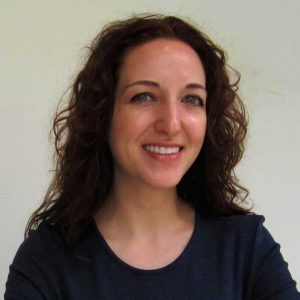Stories from the field
Inclusive social accountability: can it be taken to scale?
No one would argue that ensuring social accountability approaches are inclusive is critical. Many of us are familiar with examples that illustrate the opposite, such as the community forum where only men speak up (or even attend), or the online feedback tool that is accessible only to those with regular access to the internet.
We are colleagues from four organisations that facilitate a range of social accountability interventions – Accountability Lab, Armavir Development Centre, Integrity Action, and Restless Development – and we believe the challenge of inclusion becomes particularly interesting when you think about “scale”.
There’s a lot of pressure on practitioners like us to have a pathway to scale – which might involve finding efficiencies in our approach, or taking advantage of an existing platform that already exists at scale. It’s a regular issue of discussion within the GPSA community, and was addressed particularly in a 2014 session on how partners are thinking about scale and trying to achieve it.
But as we scale up, is there a risk that we leave people behind? This was the subject of a session we presented at last year’s GPSA Partners’ Forum and we have since been collecting and synthesising some thoughts on this. We’d like to highlight four themes here.
Being inclusive is a skill – so build it and spread it
It is important to ensure a diverse range of people take part. It is equally important to ensure that same range of people can speak their views. This can be achieved, at least partly, through facilitation. Armavir Development Centre has developed a town hall meeting approach, in which groups of citizens discuss and deliberate issues that concern them. They have formed a group of professional facilitators who have passed trainings on how to maintain diversity and encourage all members of a group to speak. This cohort of facilitators includes marginalised people.
How, then, to scale this? ADC uses a decentralised approach, collaborating with local actors including social security agencies, medical-social expertise committees, employment centres, local NGOs, schools, and local governments, engaging them to identify potential facilitators and participants and transfer inclusion skills via those institutions. It’s time consuming work but, when you’re seeking to shift the norms of participation, this is only to be expected.
Multiple channels, all coordinated
We often talk about “channels” for citizens to voice their concerns and interact with duty bearers – and having multiple channels is seen as a good way to boost inclusion. But multiple channels could also be seen as a way to boost scale. The combination of face-to-face forums, mobile platforms, media, and other channels could give access to a wide population – and scale might be more achievable if these channels are set up and overseen by multiple actors, leveraging more resources towards their ongoing administration.
Participants in the session saw coordination between multiple actors as a challenging issue however. It is nice to imagine multiple social accountability initiatives working in concert and sharing their findings, with government a core part of that picture, but this requires significant resource investment and potentially alignment of data standards, not to mention overcoming political obstacles. One good example, though, is SEND Ghana’s CSO Platform on the SDGs, which incorporates social accountability and many other issues, and has significant nationwide buy-in.
Platforms for scale: exercise caution
It is tempting to achieve scale by working through an existing platform. This platform provides the “infrastructure” for a social accountability initiative to scale up. Key public services like schools might be one platform for scale (currently used by Integrity Action’s Integrity Clubs approach), while another platform could be the mobile phone network. Government itself might be a platform for scale.
However, we have recognised some caution among practitioners about this strategy, not least because all these platforms can exclude certain people. In many countries, we see reduced attendance of children with disabilities in primary and secondary school – not to mention girls. Meanwhile access to mobile phones is by no means universal. At government level, a policy change might seem a “big win” but could be implemented in a non-inclusive way.
This doesn’t mean we shouldn’t use such platforms, since they do offer key advantages and may be better than any other alternative – but we need to consider how best to tackle these issues if we do.
Don’t forget to explain “why”
Social accountability can only be ensured if both governments and citizens understand its value. If not, it may be limited to a mere short-term, facilitator-led project. Based on the learnings from the Civic Action Teams (CivActs) campaign, Accountability Lab realized that one of the keys to building long-term social accountability is building trust between government and citizens and making them realize that social accountability is a collective responsibility.
To scale-up such a model, our experience shows that social accountability should be a local effort with minimal outside intervention. But interventions can help strengthen the inclusion of such efforts. One of Accountability Lab’s experiences comes from Nepalgunj, in Nepal, where a CivActs Team has been working for a number of years. Public money had been made available to provide customized training for women from marginalized communities. When CivActs youth leaders reached out to the Dalit community, they found that they were not aware of the training opportunity. Indeed, the government realized that their methods of marketing training opportunities were not accessible to all, and many women realized they had not been exposed to government notices or been able to participate in budget consultation meetings. This led the government to start collaborating with local organizations to make their consultations and public hearings more inclusive, especially among marginalized communities.
Taken together, we hope these themes provide a little food for thought on how different pathways to greater scale in social accountability can be navigated in a way that doesn’t leave people behind. But we would be happy to hear others’ thoughts on this. Integrity Action is inviting any feedback or reflections and will share them with the wider community – please reach out via info@integrityaction.org or engage with us on Twitter @Act4Integrity.
Authors
Rowlands Kaotcha
Mr. Rowlands Kaotcha is a Global Vice President and Director for Africa and Mexico, after having served as the Southern Africa Regional Director for The Hunger Project, Country Director in Malawi since 2004, and as dual Country Director of Malawi and Mozambique since October 2017. Recently, Rowlands led The Hunger Project’s expansion into Zambia and also serves as the Southern Africa coordinator for the Movement for Community-led Development.
related content
Capitalizing on the ability of civil society organizations to collect information from users of public services about the state of public service delivery, and effectively channeling this information to decision-makers in government and parliament can contribute to evidence-based policymaking, and, ultimately, to improved public services.




